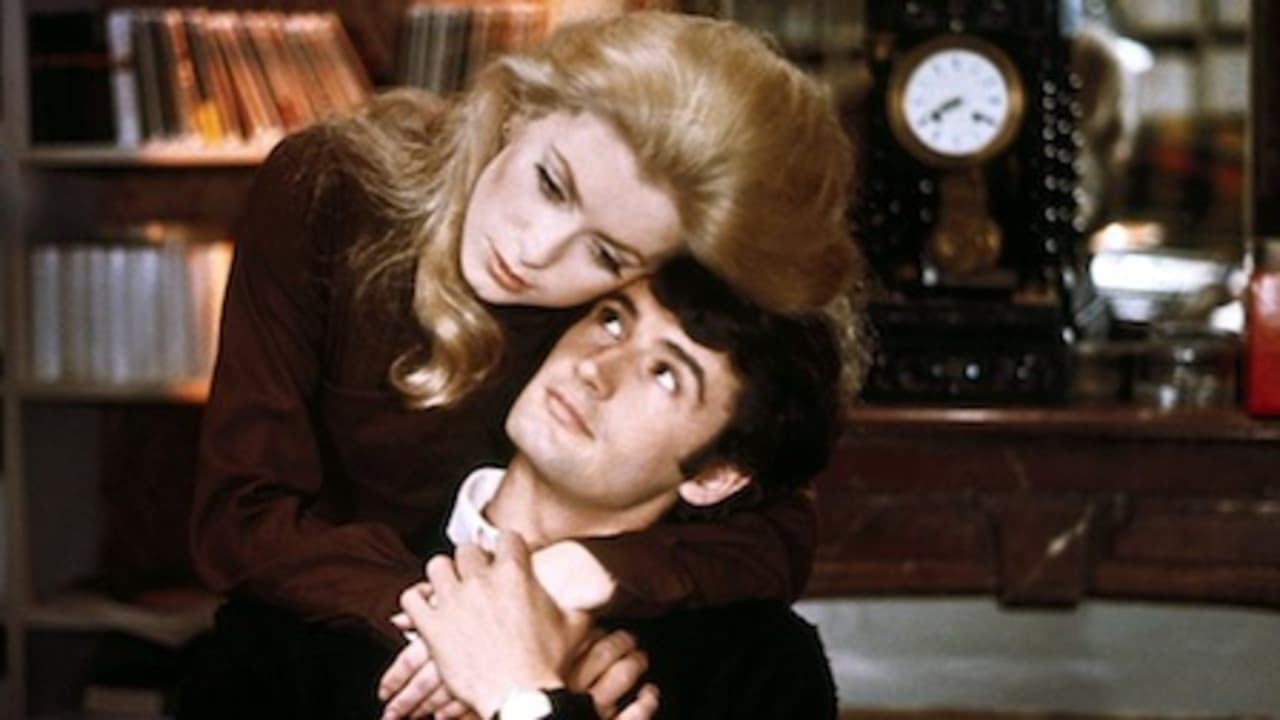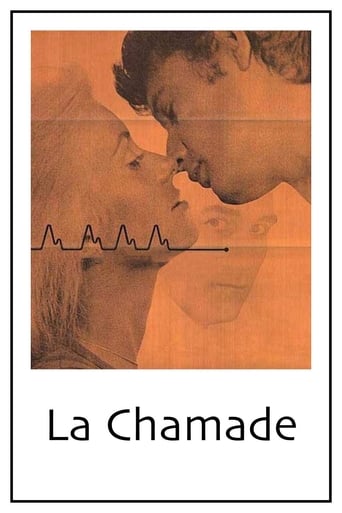

Really Surprised!
... View MoreIt really made me laugh, but for some moments I was tearing up because I could relate so much.
... View MoreIt is interesting even when nothing much happens, which is for most of its 3-hour running time. Read full review
... View MoreStory: It's very simple but honestly that is fine.
... View MoreI am prompted to review not based on any passionate feelings for this movie. I tend to agree with those reviewers who did not "feel" Deneuve's portrayal of Lucile in the movie and thus, I think this movie failed. I think in fact all of Sagan's adaptations to film have failed. But that is why I am adding my review, to disagree with the reviewer who called the original novel "silly." In fact, there is nothing more beautiful and poignant, simultaneously light and heavy, light and dark, as a Francoise Sagan novel. I don't say she is one of the greatest or most profound of French writers even in the 20th century, but she is so far from being silly it offends the senses to hear it; she has a perfect grip of the human heart and its dance with the human mind, and a magnificent grasp of phrasing, enough to convey profundity and round the most incidental of characters that most writers would allow to lay flat.As this is not a place to review the novel, I will only say in contrast to the film that Lucile's struggle between Antoine and Charles is not passionless nor can it be summed up simply as a "heart vs. head" conflict, although I appreciate this is the easiest way to summarize and is not inaccurate. In short, it gets a 5 from me and not a zero because it is so faithful to the book, and yet, it gets a 5 and not a 10 because (I suspect) the direction and performances were inadequate to the task of explaining the relationships, the everyday, everyman experiences of love &/or heartbreak that Sagan originally put down so masterfully.
... View MoreFor three years, the beautiful Lucile has lived with wealthy Paris businessman Charles, for whom she is a lovely ornament,and an admired figure among their rich, leisured circle. Lucile lives for pure sensation; the best clothes (all by Yves St Laurent), chic restaurants, summers in St Tropez. Her hedonistic character is symbolised by her pleasure in putting her head or hands out the window of her sports car and enjoying the rush of cool air. After a theatre party, she's attracted to Antoine, young journalist lover of a woman in the group. Charles throws them together, gambling a brief fling will get it out of her system. But their affair becomes more serious, and common knowledge after the two argue at a formal soiree. Following this key scene, with the disapproving guests ranged silently against the couple like a tribunal that find them guilty of that most despicable of social crimes, Bad Taste, Lucile leaves Charles's mansion for Antoine's cluttered apartment. Her new life is a shock. She has to take buses, and even work for a living,hauling files in a newspaper research library. She sells her jewels,and flirts with the idea of selling herself to a wealthy American who tries to pick her up. Her resentment of her new condition is summed up in a section of William Faulkner's SANCTUARY in which the writer unashamedly endorses a life lived for pleasure alone. She reads the passage aloud to a cafe crowded with civil servants glumly eating their lunch, and they erupt in applause.When Lucile gets pregnant, it's Charles to whom she turns for the abortion. As the relationship with Antoine deteriorates, she ducks the grim modern play he wants her to see, and instead accompanies Charles to a concert. Dressed again in one of her St Laurent gowns (she's left fifty of them at Charles's place, perhaps suspecting she might need them again) and sipping champagne while listening to Mozart, she realises this is her true milieu. Next morning, she returns to the sleeping Antoine only to set out a single coffee cup for his breakfast, then ring him from the bar downstairs with news that it's over.Few actresses convey sensuality more effectively than Deneuve, and in LA CHAMADE she's at her most seductive. She exudes undiluted desire when,beautifully sun-tanned, she welcomes the news that Antoine will join her in St Tropez for a mid-summer idyll. The phone call comes at a bar telephone next to the statue of a bare-breasted woman - as close as the film ever gets to nudity. Throughout, Deneuve never shows more than a leg and her shoulders. Yet even a scene where she dumps salt and hot water into a red plastic bowl to soak her sore feet carries an erotic tingle.While Lucile is no heroine, she's the archetypal Parisienne, her self-regard justified by her beauty and style. Ironically, LA CHAMADE was made on the eve of the 1968 revolutionary "events", as the French now call them. At the time, the disappearance of Lucile and her class was confidently predicted. Like similar forecasts in 1789, it was premature. Today, Paris is more and more filled with such beautiful creatures, and Deneuve herself continues to flourish. Vive la France, and Vive la Deneuve!
... View MoreA heart that beats "the chamade" (la chamade is a particular drum beat) is a heart ready to surrender to the charms of an adversary. This film is a poor adaptation of Françoise Sagan's tedious novel of the same name. In the novel, Sagan, faithful to her fetish themes of indolence, gilded youth, easy money, and fast cars, depicts in unflattering terms the superficiality and immorality of the French high bourgeois society of the 1960s. Sagan and Chevalier collaborated on the thin, tiresome screenplay. The three main characters are so flatly drawn that even two high-caliber actors such as Deneuve and Piccoli must continuously struggle through tepid platitudes and situational predictability throughout. Roger Van Hool as Deneuve's young lover is so insipid as to effectively block any audience sympathy for the story. We are quickly bored with the comings and goings of these three uninteresting characters, and we don't care about what happens by the film's end.Of course, I know of many fates worse than spending 100 minutes watching the camera caress La Belle Catherine -- a forty-years younger one, as well -- but if that's all the film has to offer, then ultimately it's just not worth watching.
... View MoreSlick but rather tedious romantic melodrama from a novel by Francoise Sagan, despite the presence of two of European cinema's most representative - and durable - actors in Catherine Deneuve and Michel Piccoli (who've been teamed a staggering 16 times throughout the years but their best moment, surely, was in Luis Bunuel's sublime BELLE DE JOUR [1967]).With a plot that's too thin - and familiar - to sustain its length, the film depends entirely on its two stars: Piccoli, however, has played this role far too often (including THE GAME IS OVER [1966] which preceded it; see review above) but Deneuve - at the height of her beauty - is as captivating as ever. Still, Roger Van Hool is vapid as Deneuve's young lover - which rather prevents audience involvement in the couple's plight!
... View More